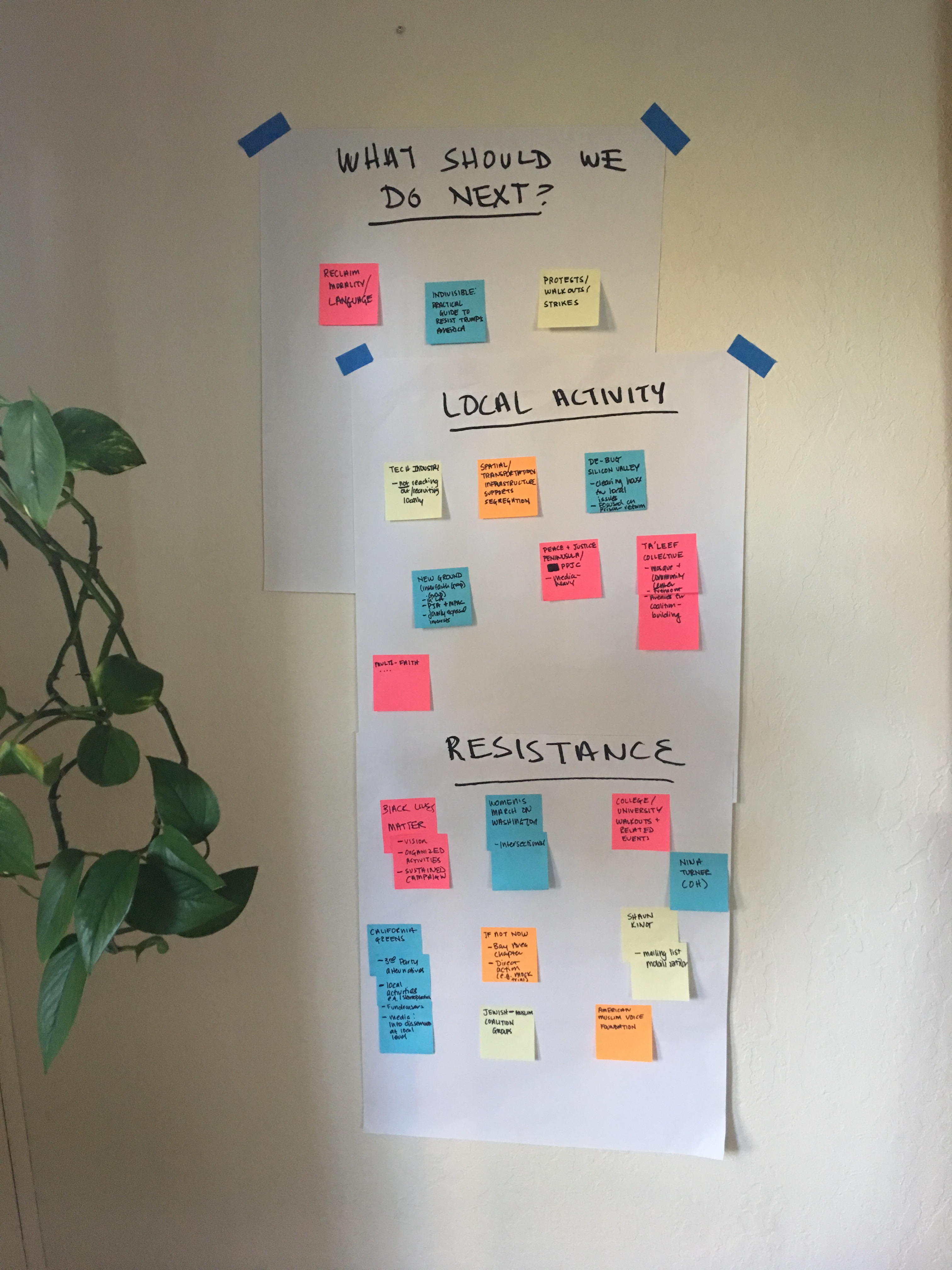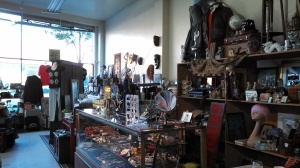On January 15, Fair Money founder Marijke Rijsberman opened up her home in Redwood City for a pre-inauguration gathering. The event aimed to bring together Bay area residents concerned about the direction the country appears to be taking, and interested in working alongside their neighbors to make the region a more fair, inclusive, and equal place for those who live here.
Advertised widely using sites such as Nextdoor.com and Meetup.com, the event attracted many new faces to Fair Money, along with lots of old friends. After a period of mingling and munching on a delicious spread of food prepared by Fair Money members, the floor was opened for a round of introductions. Attendees were asked to share their names, how they had heard of Fair Money, and the concerns that had inspired them to attend the event.
After a series of common concerns were identified—such as rising rental and home costs, the experience of racism and xenophobia, and inequality in educational access—attendees split into small discussion groups to brainstorm potential individual- and group-level responses that could be taken to address these deeply entrenched social problems. Having a mixture of researchers, people working with non-profits, artists, and concerned citizens in the room contributed a diversity of knowledge and perspectives on issues, leading to rich conversations. For example, in my group—which was focused on the housing affordability crisis—, I learned a lot about the various ways different community groups were already engaged in working with city councils in the region to address housing issues, as well as the different challenges each city context presents for developing workable solutions to the affordability problem. On the other hand, as a sociologist who has studied the impact of economic booms on inequality in other cities in the U.S., I was able to share how the Bay Area experience was similar and different to other regions undergoing similar population and job increases.

The afternoon’s event ended with a share out in which members of each group presented what they had discussed and suggested potential next steps forward and collaborations for working toward solving the issue they had selected. The event closed with an open question: What next? While the pathway ahead for solving the sometimes seemingly intractable barriers to a more fair, inclusive, and equal Bay Area region is long, windy, and uphill, it was inspiring to meet so many people, from so many backgrounds and walks of life, interested in forging ahead together. There are a lot of people that want to make the Bay Area great—not again—but for once, and for all.

